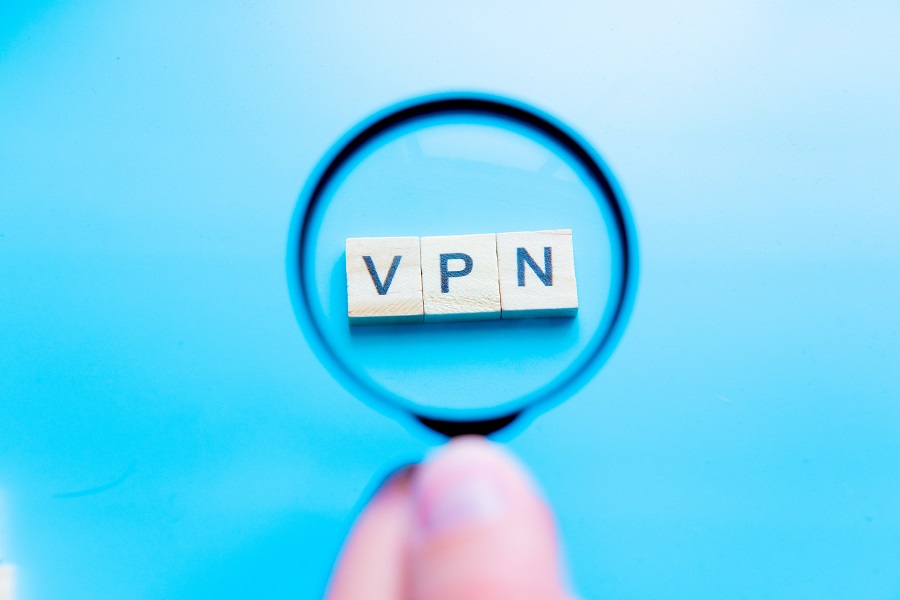Myth: VPN makes you totally invisible
This system is advertised as bringing a new level of online privacy and anonymity. That’s true, but a VPN can only do so much. For example, privacy means not allowing anyone to access information that you don’t wish to disclose. But when you want online services like Facebook and YouTube to show you personalized content, you mustn’t stay private from them. Anonymity, in turn, means not revealing who you are. You give it up when entering your credentials to register in any online service. Trying to stay private and anonymous in those cases is illogical.
What’s more, VPN manages the protective virtual tunnel all the way to the server, but not further. The destinations all around the Internet receive ordinary Web requests from you. That includes all the private data you decide to share. The only thing that gets changed is your IP address.
Myth: VPN protects you from all harm
It’s true that any decent VPN relies on unbreakable cryptography. Even the toughest supercomputers would need ages to decrypt a single message. But that doesn’t cover every potential online risk. As noted, the end servers receive the communication normally. What if they are malicious or hacked?
Moreover, phishing attacks are especially noteworthy. They exploit the weakest spot in the system: the human factor. Hackers used to depend on finding flaws in computer systems. But the security software must pass rigorous testing by the most professional experts. It’s easier to use persuasion, impersonate authorities and somehow trick you into making a mistake like giving credit card data to a thief pretending to be a bank worker. The more information you give up voluntarily, the worse the consequences might be. Education and vigilance can mitigate that – not a VPN.
A proxy can replace VPN
Proxy servers do change IP addresses similarly to VPNs. And with enough marketing, they even seem superior to VPNs. Words like ‘faster, cheaper, and easier’ sound attractive and are ‘sort of’ true. Let’s deal with those claims.
- Both VPN and proxy servers are intermediaries in computer networks. But since the two terms differ deeply in their architecture, they shouldn’t be confused even if used for similar purposes.
- Proxies don’t apply encryption, and that’s why they can potentially be faster. Unfortunately, not always practically faster! This depends on many other factors: server congestion, protocol implementation, and hardware and software quality.
- Proxy servers are cheaper to maintain, so customers are often charged less. There are many free proxies, actually. But a decent VPN protects you, and a free proxy exposes you.
- Certain kinds of proxies don’t require installing an extra app, which might be seen as easier to use. But what’s so difficult about handling a basic interface like tuxlerVPN has, with literally one button you must click?
- The reality is that proxy is a more general term than VPN. Its major disadvantage is that it doesn’t infer any additional security like VPN does.
VPN will unlock any restricted content
Let’s turn to the (probably) most common application of the VPN: bypassing geo-blocking. Putting aside legal debates about righteousness, it’s not a magical and foolproof feat. It’s a technical method that can be countered. As a matter of fact, some online entities actively fight off accessing them via VPN. A well-known example is the Netflix VPN ban. Theoretically, it’s possible to block any kind of VPN. Some pages remain blocked regardless of whether you switch your VPN on or off. But possible doesn’t mean infallible. Good VPN services act against VPN detection with dedicated IP addresses, residential VPN, frequent IP rotation, and cloaking the traces of a VPN system.
Everyone needs VPN all the time
Some people see the Internet as a scary place, where everyone needs to be hidden behind a VPN. The truth is, it serves specific purposes you may or may not really need. The most common are:
- Increasing your security. It makes most sense if you use unsafe networks or don’t trust your ISP, which doesn’t happen 100% of the time.
- Protecting your privacy. You might simply not care about that. Still, we recommend being careful about disclosing your sensitive data online.
- Bypassing geo-blocking. That’s a specific need you might never have if you’re pleased with the content you can access freely.
The VPN adds an extra layer of security, which might save you from real danger. If you’re responsibly not concerned about any risks, you’re welcome to surf the Web with regular safety measures.
The Internet is full of legit-sounding nonsense. Some come from excessive marketing, and some from outrageous dishonesty. Always double-check your beliefs when making an important decision – like trusting a certain VPN. Stay safe online!





